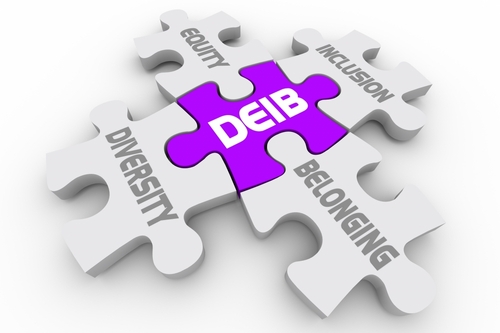From the largest corporate boardrooms to the smallest neighborhood businesses, organizations have declared their commitments to diversity, equity, and inclusion (DEI) in recent years and have made significant efforts to both talk the talk and walk the walk. Today, we know those efforts have had varying results and impact.
In other words, there is still so much to do.
In my work, I’m often asked, “What’s next?” when it comes to DEI. The answer is both simple and complex. Many workplaces have made strides by establishing policies and structures that aim to send a message of inclusivity: “You belong here too.” It’s a commendable start, but the next evolution of DEI demands more, and the people whom our workplaces serve still deserve better.
The journey towards genuine progress in DEI requires more than just inclusive policies and training programs – it calls for cultivating cultures of belonging. All people deserve nothing less than an environment that unequivocally communicates, “You were considered in the design of our organization.” It is by evolving inclusion to a culture of belonging that organizations can truly foster an atmosphere where every individual feels valued, embraced, and empowered to thrive.
This type of shift in DEI work, however, requires systemic change. To date, our DEI programs have largely focused on individuals in underrepresented groups, with little investment in making sustainable systemic changes. This can send the unintended message that those in underrepresented groups need “fixing.” True DEI progress will remain stagnant unless we confront the truth: it is the system that demands mending, not the people.
But that doesn’t mean we need to shift our focus and investment to the system solely. As we dedicate ourselves to designing new systems that truly consider the needs of everyone, we must also prioritize supporting those who are being let down by the current system. Systemic change will take time and require patience. We can’t, however, continue to leave our underrepresented talent behind in the meantime.
Nurturing Underrepresented Talent to Support Systemic Change
We know that people in underrepresented groups feel isolated and less able to express themselves than their colleagues. As humans, we have an innate need to belong that is more fundamental than simply being included. This means we are collectively falling short when it comes to meeting the core needs of underrepresented talent. The parallel consequence is that we are also not able to see and cultivate the authentic talents, skills, and passions of our colleagues, and our people – and our organizations – suffer for it.
Elevating underrepresented talent and providing them with opportunities to ascend to leadership positions is crucial in the quest for creating and designing meaningful, systemic changes within our workplaces. Embracing diversity at all levels of an organization brings a wealth of unique perspectives, experiences, and ideas to the table. When underrepresented individuals are given the opportunity to lead, they can contribute their invaluable insights, challenge the status quo, and champion initiatives that cater to the diverse needs of the entire workforce.
If companies want to retain their diverse workforce and cultivate diverse leaders, it is critical that they create a culture where people of diverse backgrounds and identities feel a true sense of belonging, and where they feel they have a fair opportunity to succeed and thrive in the workplace.
The leaders in place today, which are still largely comprised of white men, must be willing to take a hard look at their internal processes and policies for recruitment, development, promotions, succession planning, and compensation to ensure that the policies and procedures are equitable and free of bias. They must also be truly commited to co-creating an inclusive culture where their employees can bring their authentic selves to the workplace without fear of experiencing microaggressions or other forms of exclusion.
The journey towards genuine progress in diversity, equity, and inclusion requires more than just a superficial commitment. It necessitates a profound cultural transformation, where belonging is at the core, and every individual is embraced and empowered to thrive. To achieve this, we need leaders, not just those in DEI and HR roles, to take accountability for supporting and elevating underrepresented talent throughout the journey of implementing sustainable change that will shape workplaces for a more equitable future.
Leaders must be proactive in educating themselves about the systemic challenges faced by their employees and be bold and vocal allies in DEI initiatives. A passive approach will not suffice in driving sustainable shifts in organizational and team cultures. We must push for fundamental changes that move the system away from benefiting only the majority to fostering belonging for all, in the very essence of its operation.
As we move forward, let us remember that the journey towards true diversity, equity, and inclusion is not one to be taken lightly. It requires courage, determination, and a collective commitment to dismantling the barriers that have held back underrepresented talent. Systemic change may be challenging, but that should never discourage us from pursuing it. While we acknowledge the difficulties, it is not an excuse to abandon the work. On the contrary, it is precisely the reason why we must push forward with even greater determination and commitment. Every step we take towards creating equitable systems and cultures of belonging is a step towards a better future, where no one is left behind, and everyone has an equal opportunity to thrive.
Renu Sachdeva is Head of Client Solutions, Americas at Talking Talent.

